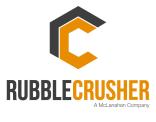‘Self-cleaning’ meshes from Potter & Soar
As all quarry managers know, as soon as a stockpile becomes wet, even after a short burst of rain, problems can arise with a blinded mesh – usually on the bottom deck in the most inaccessible place.
When damp particles adhere to a screen mesh, other particles start to build up and apertures become blocked; this being more common with smaller mesh openings as blinding occurs.
This can lead to higher production costs because of the labour required to remove and clean the mesh, while the knock-on effects include greater mesh usage, worn bearings and screening equipment problems.
To overcome such dilemmas for quarry managers, Potter & Soar manufacture two distinct types of ‘self-cleaning’ Hyclean S meshes, used when the feed to the deck is less than 10% of five times the size to be screened. The company’s standard Hyclean mesh is used when the feed is more than 10% of five times the size to be screened.
The self-cleaning screens units do not solely rely on the vibration produced by the screening equipment, as the percentage of oversize or impact particles in the feed deck is of equal or greater importance.
Screening machines will induce horizontal vibrations to the deck but the impact particles produce vertical and even horizontal vibrations in the corrugated wire. Whether the vibrations are produced by the screening machine or by impact particles, it is imperative that the wires remain free to vibrate.
Cross weaves provide some rigidity to the mesh and, therefore, should always be positioned over the mesh support beams. In addition, using a camber deck, with the cross weaves matching the supporting bars, the maximum open area is ensured and the maximum amount of vibration is imparted.
Potter & Soar’s mesh wires are made from high-tensile steel, which is suitable for most applications. Alternatively, the company can provide stainless steel meshes, which prevent the adhesion of moist fines.
According to Potter & Soar, certain rules should be applied when considering self-cleaning screens. Generally, they will blind less than normal screens, but using the following guidelines will help ensure optimum performance:
Potter & Soar Ltd, Beaumont Road, Banbury, Oxon OX16 1SD; tel: (01295) 253344; fax: (01295) 272132; website: www.wiremesh.co.uk
When damp particles adhere to a screen mesh, other particles start to build up and apertures become blocked; this being more common with smaller mesh openings as blinding occurs.
This can lead to higher production costs because of the labour required to remove and clean the mesh, while the knock-on effects include greater mesh usage, worn bearings and screening equipment problems.
To overcome such dilemmas for quarry managers, Potter & Soar manufacture two distinct types of ‘self-cleaning’ Hyclean S meshes, used when the feed to the deck is less than 10% of five times the size to be screened. The company’s standard Hyclean mesh is used when the feed is more than 10% of five times the size to be screened.
The self-cleaning screens units do not solely rely on the vibration produced by the screening equipment, as the percentage of oversize or impact particles in the feed deck is of equal or greater importance.
Screening machines will induce horizontal vibrations to the deck but the impact particles produce vertical and even horizontal vibrations in the corrugated wire. Whether the vibrations are produced by the screening machine or by impact particles, it is imperative that the wires remain free to vibrate.
Cross weaves provide some rigidity to the mesh and, therefore, should always be positioned over the mesh support beams. In addition, using a camber deck, with the cross weaves matching the supporting bars, the maximum open area is ensured and the maximum amount of vibration is imparted.
Potter & Soar’s mesh wires are made from high-tensile steel, which is suitable for most applications. Alternatively, the company can provide stainless steel meshes, which prevent the adhesion of moist fines.
According to Potter & Soar, certain rules should be applied when considering self-cleaning screens. Generally, they will blind less than normal screens, but using the following guidelines will help ensure optimum performance:
- They should always be tensioned over a cambered deck.
- Choose correct type of self-cleaning screen – Hyclean or Hyclean S.
- Thin wires do not blind as readily as thick wires due to their lower surface area.
- Cross weaves should match the screen supports. If weaves do not coincide with the supports, the vibration length of the screen wires is reduced and the self-cleaning effect is lost.
Potter & Soar Ltd, Beaumont Road, Banbury, Oxon OX16 1SD; tel: (01295) 253344; fax: (01295) 272132; website: www.wiremesh.co.uk



